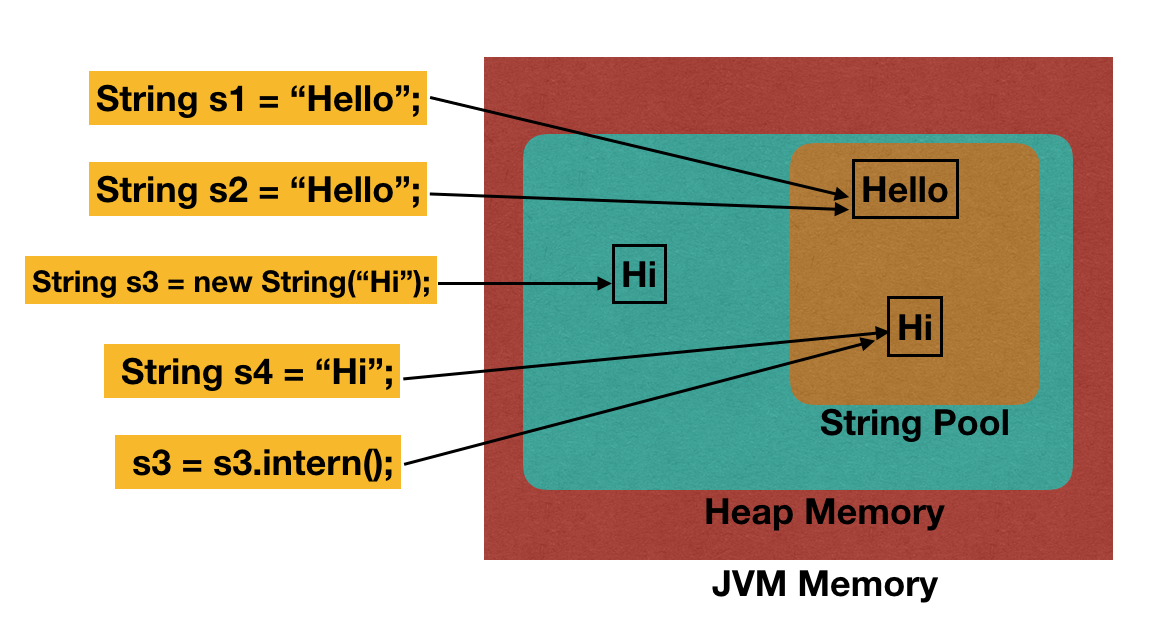Why Are Strings Immutable in Java? Checking Out the Design Choices
Why Are Strings Immutable in Java? Checking Out the Design Choices
Blog Article
What Is Immutable Strings and Exactly How It Functions
In the realm of programs, recognizing the principle of immutable strings is vital for producing robust and safe and secure applications. Unalterable strings refer to strings that can not be changed after they are produced, guaranteeing data integrity and predictability within the code.
The Essentials of Unalterable Strings
Immutable strings, as an essential concept in shows, are character series that can not be changed when they are created. This means that when a string is appointed a value, that value can not be modified. In languages like Python and Java, strings are immutable items, leading to different implications in regards to memory management and data honesty.
One of the key benefits of immutable strings is that they give a complacency in data adjustment. Because the material of an immutable string can not be modified, it ensures that the original data stays intact, decreasing the danger of unexpected changes during program execution (Why are strings immutable in Java?). This residential property likewise streamlines debugging processes, as designers can rely on that once a string is defined, its value will not be accidentally altered
When a new string is created based on an existing one, instead than changing the initial string, the new value is saved independently. In general, recognizing the essentials of immutable strings is crucial for grasping programs concepts and maximizing code performance.
Advantages of Immutable Strings
Structure upon the protection and performance advantages of unalterable strings, their benefits reach enhancing code dependability and streamlining simultaneous shows jobs. By being unalterable, strings can not be changed after creation, which eliminates the risk of unintentional adjustments in the information they store. This integral immutability makes sure that when a string is created, its value continues to be constant throughout the program's implementation, reducing the chances of bugs triggered by unexpected changes.
Furthermore, unalterable strings contribute to code integrity by making it much easier to reason concerning the state of a program. Considering that strings can not be transformed, programmers can rely on that a string will constantly hold the same value, streamlining debugging and upkeep initiatives. This predictability leads to extra dependable and steady codebases.

Implementation in Shows Languages
Within numerous shows languages, the consolidation of unalterable strings is a fundamental aspect that affects exactly how data is taken care of and adjusted within code structures. The application of unalterable strings varies across different programs languages, with each language supplying its own mechanisms to support this principle.

In comparison, languages like C and C++ do not have integrated assistance for immutable strings. Designers in these languages have to by hand implement immutability by imposing rules within their code to avoid direct modifications to string things.
Finest Practices for Dealing With Unalterable Strings
When handling unalterable strings in shows languages like Java and Python, adhering to finest practices guarantees protected and effective data adjustment. One of the vital ideal techniques is to utilize StringBuilder or StringBuffer as opposed to straight manipulating strings, particularly when taking care of comprehensive concatenation operations. These courses offer mutable look here alternatives for string adjustment, assisting to avoid unnecessary memory allocations and enhancing efficiency.
Another ideal method is to utilize string interpolation or format operates given by the language rather than hand-operated concatenation. This not only enhances readability however additionally aids in avoiding common challenges such as unintended string modifications. Furthermore, when dealing with sensitive data such as passwords or API tricks, it is vital to prevent keeping them as ordinary message in unalterable strings. Using protected storage space devices like char selections or specialized collections for taking care of delicate info aids minimize protection risks connected with unalterable strings.
Real-world Applications and Instances
Discovering functional implementations of unalterable strings in different sectors reveals their considerable effect on information stability and system integrity. In the medical care market, unalterable strings play an essential function in making certain the protection and privacy of client data. By stopping unapproved alterations to delicate details such as medical records and prescriptions, unalterable strings help maintain compliance with rigorous privacy guidelines like HIPAA.
Banks additionally gain from the unalterable nature of strings to boost the protection of consumer information and transaction records. Unalterable strings help prevent scams and unauthorized modifications to economic info, giving a robust defense versus cyber dangers and ensuring the trust fund and confidence of customers.

Final Thought
Finest methods for working with immutable strings include staying clear of straight modifications and utilizing methods that return new string things. Real-world applications of immutable strings consist of information encryption, caching, and string manipulation tasks.
Immutable strings refer to strings that can not be modified after they are produced, making sure information stability and predictability within the code. When a new string is developed based on an existing one, instead than changing the original string, the brand-new value is Read Full Article saved separately.In languages like Java and Python, strings are unalterable by default, suggesting that as soon as a string item is created, its value can not be transformed - Why are strings immutable in Java?. Ideal techniques for functioning with immutable strings include avoiding direct alterations and making use of techniques that return new string objects. Real-world applications of unalterable strings consist of data file encryption, caching, and string manipulation jobs
Report this page